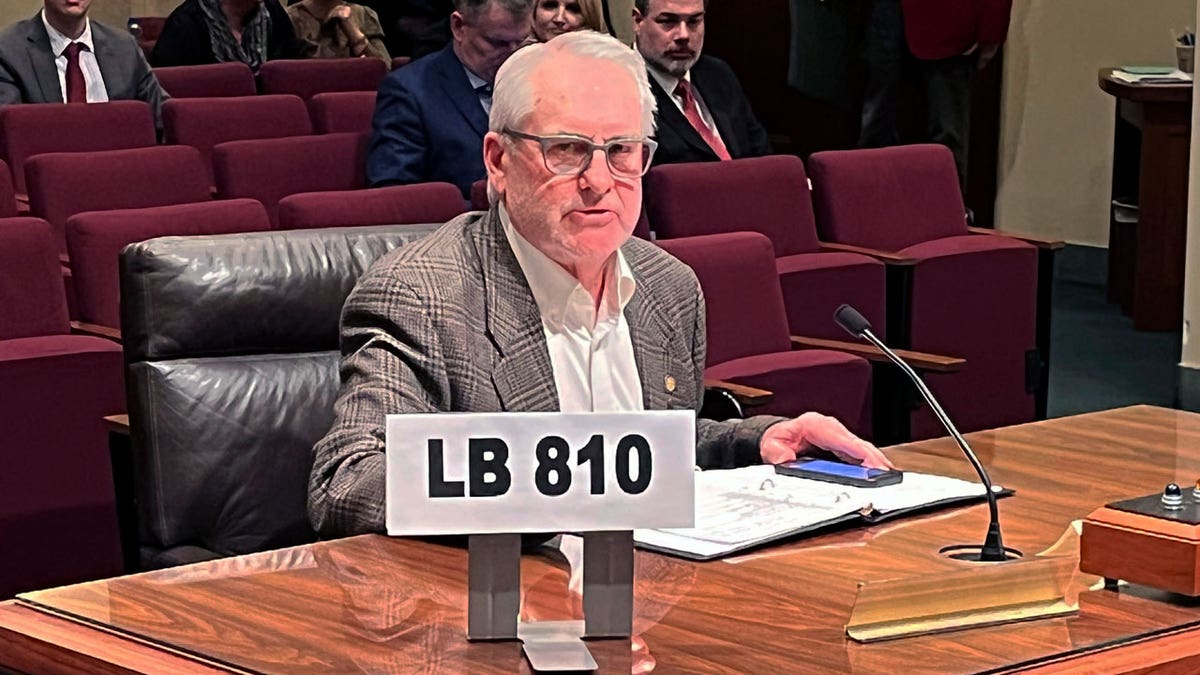Fox News Flash top headlines for February 10
Fox News Flash top headlines are here. Check out what's clicking on Foxnews.com.
Nebraska lawmakers are following the path of other conservative states in considering a bill that would allow medical providers, facilities and insurers to cite their religious, ethical or moral beliefs in denying some medical treatments. Critics say it's simply another way to target abortion rights and the LGBTQ community.
The bill, introduced by Sen. Dave Murman, of Glenvil, casts a wide net. The term "medical providers" covers everyone from doctors, nurses and pharmacists to mental health counselors and nursing home staffers — all of whom could refuse to perform nonemergency procedures, from abortions and gender-affirming hormone treatments to prescribing birth control — if the provider has a moral objection to it.
The bill includes nearly three pages of language protecting providers who conscientiously object to providing treatment from lawsuits, criminal charges and professional ethics charges.
The bill would also allow medical practices, clinics and hospitals to refuse treatment based on conscientious objections and would allow businesses and health insurance companies to refuse to pay for treatment for the same reasons.
Murman said the measure does not give carte blanche to those providers and entities to discriminate against patients. A doctor who identifies as a Christian could not, for example, refuse to treat someone because the person is Muslim, or vice versa.
"The act is procedure specific, not patient specific," Murman said Friday at a hearing for the bill before the Legislature's Health and Human Services Committee.
A similar bill is being considered in Montana, and in 2021, Arkansas passed its own medical conscientious objection law. In Idaho, a bill widely seen as targeting LGBTQ residents would allow mental health therapists and counselors to refuse to treat clients if the clients’ goals or behaviors conflict with the counselor’s "sincerely held principles" narrowly advanced from a legislative committee Thursday.
Jane Seu, legal and policy counsel with the American Civil Liberties Union, was among those who opposed the Nebraska bill Friday, saying it would "provide an unbridled license to health care professionals to discriminate against their patients for almost any reason."
"This license to discriminate will be felt more severely in rural areas where patients have a limited choice of medical providers," she said.
Eliana Siebe-Walles, a 20-year-old student at the University of Nebraska-Lincoln who uses the pronoun they, told the committee that they suffer from a reproductive condition that is treated with birth control hormones.

Nebraska state Sen. Dave Murman introduced a bill allowing healthcare providers to "conscientiously object" to procedures they disagree with. (AP Photo/Margery Beck)
"Under this bill, a provider could potentially keep me from getting the treatment I need," they said.
Outside the hearing, Siebe-Walles said their main concern is that this bill could be used by medical staff to discriminate, "especially against people of color and queer people who are already more burdened than others when it comes to getting the care they need."
That fear is prevalent, too, in Idaho, where a bill prohibiting all gender-affirming medical care is expected to pass the Idaho House. That, coupled with the conscientious objection bill for mental health workers, has some LGBTQ residents and allies worried that young people there will soon be facing a near-total healthcare hurdle.
Kris Huntting, a transgender parent raising a transgender teen in southwestern Idaho, was refused treatment by their own long-time therapist several years ago after revealing they were trans. Now Huntting is worried about their son’s healthcare access, even though the 15-year-old has not yet expressed an interest in gender-affirming medical care.
ARKANSAS HOUSE PASSES TRANS BATHROOM BAN FOR SCHOOLS
"One thing I’ve really struggled with is that his doctor knows he’s trans," Huntting said Thursday. "Should that have been a thing I mentioned medically to his doctor, or is he not going to be treated for his depression and anxiety anymore — which he’s had all his life — because it will be considered related to his gender dysphoria diagnosis, or because a therapist might not like that?"
The American Medical Association’s code of medical ethics says physicians have an ethical obligation to provide care in medical emergencies and that doctors "must also uphold ethical responsibilities not to discriminate against a prospective patient on the basis of race, gender, sexual orientation, or gender identity, or other personal or social characteristics that are not clinically relevant to the individual’s care."
CLICK HERE TO GET THE FOX NEWS APP
Keeping that in mind, doctors may decline to provide treatment "in certain limited circumstances,’’ which include if the patient requests care that is "incompatible with the physician’s deeply held personal, religious or moral beliefs,’’ according to the code.














































